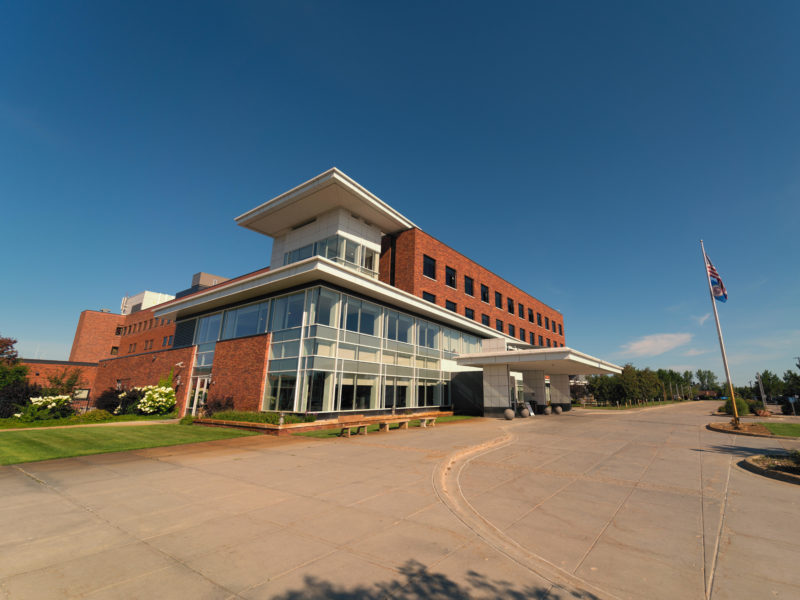In the early hours of March 12, Andy Freeman drove himself to the Sanford Bemidji ER. Light pressure in his chest had kept him up all night — surely a symptom of COVID-19, he thought.
What doctors quickly discovered, however, was that Freeman was experiencing a major heart attack.
To his complete shock, Freeman soon found himself in a hospital gown, preparing for an emergency heart procedure. Interventional cardiologist Gregory Schuchard, M.D., swiftly opened a blockage in one of Freeman’s heart arteries and inserted two stents to restore blood flow.
“It sure surprised me,” Freeman said. “I really try to stay in shape and eat healthy. A heart attack wasn’t on my mind at all.”
For the next three nights, Freeman remained at the hospital for careful monitoring. He was touched by the kindness of staff who helped him feel at home.
‘Thank you for your dedicated service’
By the time Freeman left the hospital, his newly repaired heart was filled with gratitude.
In a letter to the editor of the Bemidji Pioneer entitled “Thank you to all for your dedicated service,” Freeman detailed the many ways doctors, nurses and staff had gone above and beyond for him.
“I was so surprised,” Dr. Schuchard said. “It’s so unusual for people to take the time and say thank you. I shared it with the team — it’s good to know that when you come in, it really makes a difference for people.”
Better safe than sorry
As Freeman’s story shows, signs of a heart attack can sometimes be subtle.
“A lot of people just don’t get typical warning signs to come in early,” Dr. Schuchard said. “For one out of three people, their first symptom is sudden heart attack.”
Warning signs of a possible heart attack:
- You have chest discomfort when you walk or exercise.
- You have chest pain along with tiredness (fatigue) or shortness of breath.
- Your resting heart rate is usually faster than 100 beats per minute.
- You are a young man with erectile dysfunction.
Symptoms are not the same for everyone. Women may have stomach upset, and older adults may have confusion or fainting.
If you have concerns, he says, it’s always better to be safe than sorry and seek medical attention.
“It’s all about speed,” explained Dr. Schuchard. “When the artery is blocked off, you have four hours or less; otherwise you lose most of the heart muscle. That’s why there is such a rush to get that artery open.”
Saving lives, close to home
The Sanford Heart and Vascular Center opened in 2013 — a historic moment made possible with the generosity of the Bemidji community. Before the center existed, local patients like Freeman would have to travel hours away for heart and vascular care, losing precious, lifesaving time.
Today, philanthropy remains vital in supporting lifesaving technology, equipment and services, as well as helping attract and retain world-class specialists and staff.
“We have four different teams that rotate so there’s always a complete, full team available 24/7,” said Dr. Schuchard.
In addition to the doctors and nurses, the team includes cath lab technicians, who perform critical work behind the scenes.
“They’re world-class all across the board,” he said. “We are lucky to have this strong of a team in a small town too.”
Freeman agrees. In the months since his heart attack, he says the cardiac rehabilitation program at Sanford, medication and regular exercise have him on the road to full recovery and prevention.
Learn more
- Doctor and heart disease survivor leads annual heart walk
- After a heart attack, Sanford lab tech pushes awareness
- Heart failure clinics help keep patients out of hospital
…
Posted In Bemidji, Foundation, Heart
